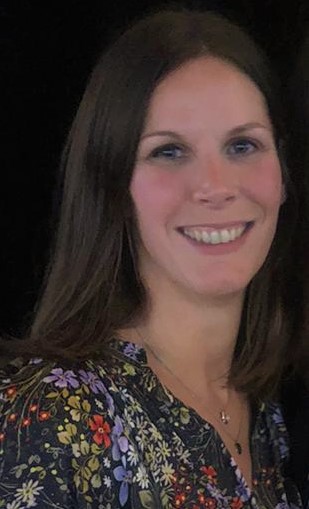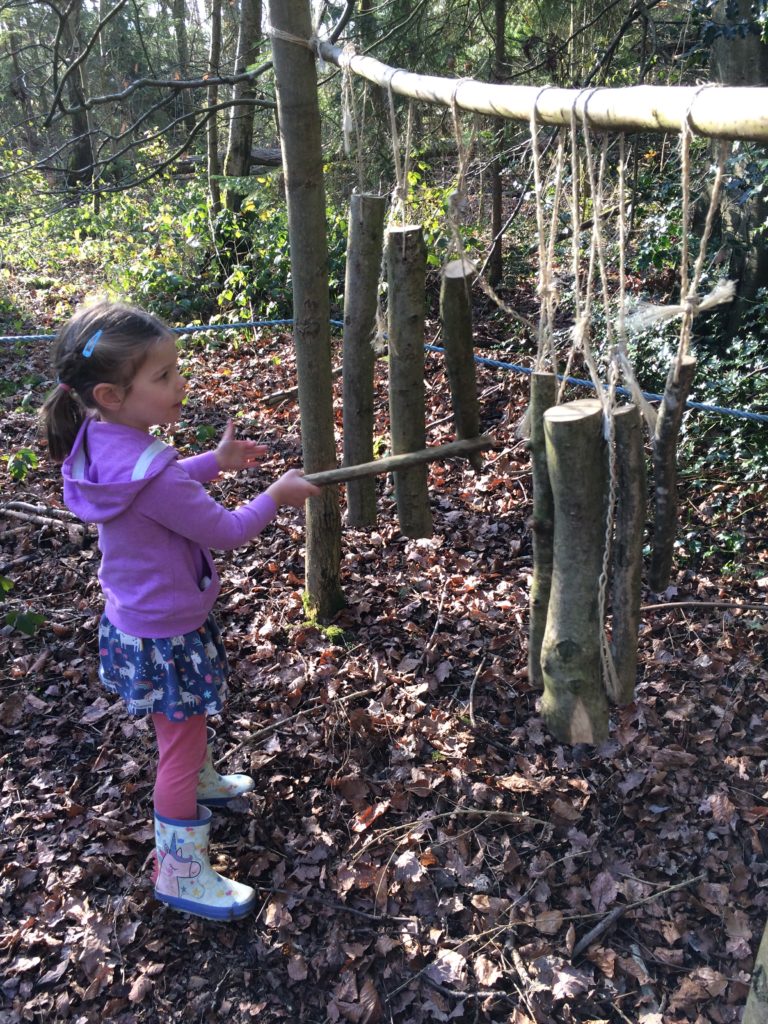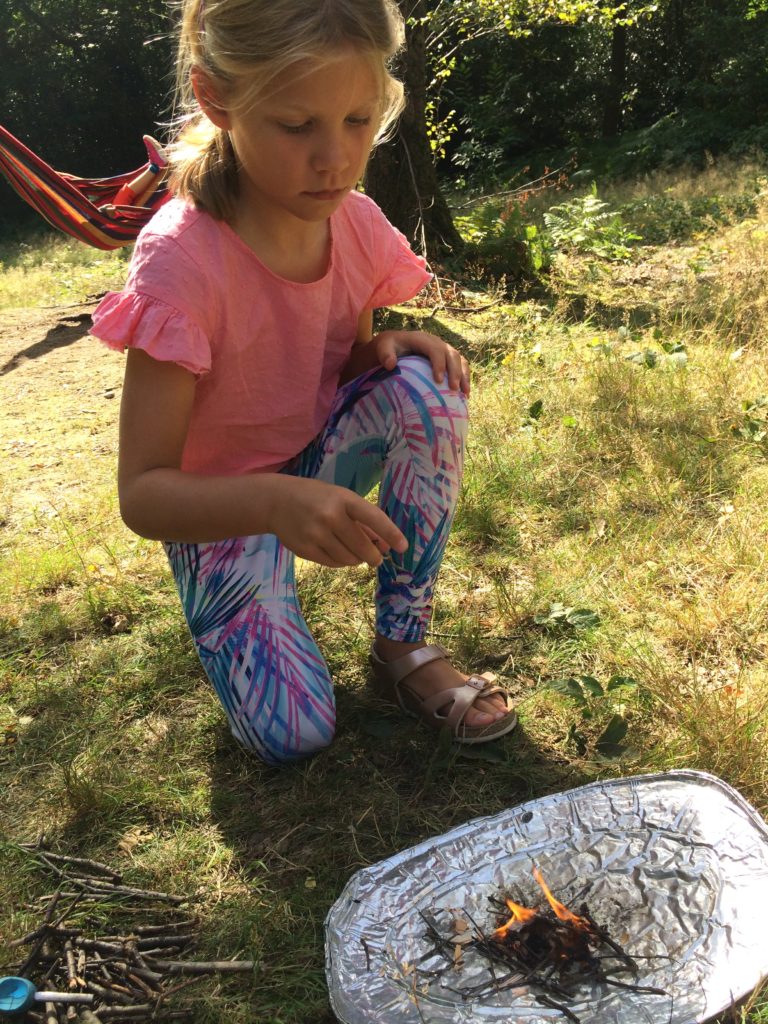Education Provider Voice 7
Caroline Gladkow – Founder of Nurture in Nature Forest School

Caroline Gladkow is a qualified primary school teacher who has taught in both state and private schools in the UK. A move to Amsterdam, where progressive approaches are much more mainstream, provided her with the opportunity to experience alternative education approaches and led to her qualification as a Montessori teacher.
This experience and training sparked her ambition to move away from ‘didactic’ teaching and create her own child led learning environment. As such she has founded the Nurture in Nature Forest School in Hertfordshire.
What educational approach does your setting follow?
We are a Forest School provision. I also have a Montessori teaching diploma and so there are also some Montessori influences within my approach, as there is some overlap in the two approaches.
What are the main principals of your approach?
My summary at Nurture in Nature Forest School is:
Forest School is a child-centred, holistic approach to learning, in which all parts of the child: physical, emotional, spiritual, intellectual, social and communication are considered, supported and developed through positive outdoor experiences with nature.
Forest School promotes success, independence and risk taking which helps develop self-esteem and confidence through a range of open ended activities. Within Forest School there is a move away from traditional didactic teaching, with the emphasis being on providing opportunities for child initiated exploration and learning.

Forest School Leaders adapt their planning to meet the individual needs of their group by careful observation, reviews and discussions. They use their pedagogical knowledge to help support and scaffold the children and develop their skills according to their individual needs and interests.
Forest School provides opportunities for ‘small achievable tasks’ which ensures all children succeed. There is no ‘right or wrong’ way of doing things, just a safe way. This allows the children to develop creativity and become independent thinkers. Within the Forest School setting everyone is equal, children and adults support one another and through regular sessions a sense of community is built.
The FSA [Forest School Association] outlines 6 guiding principles for Forest Schools:
- Forest School is a long term process of frequent and regular sessions in the woodland or natural environment with the same group of learners. Planning, adaptation, observations and reviewing are integral elements of Forest School.
- Forest School takes place in a woodland or natural wooded environment to support the development of a relationship between the learner and the natural world, it uses natural resources for inspiration and encourage intrinsic motivation.
- Forest School aims to promote the holistic development of all those involved (physical, emotional, spiritual, intellectual, social and communication), fostering resilient, confident, independent and creative learners.
- Forest School offers learners the opportunity to take supported risks appropriate to the environment and to themselves (through tool use, fires, tree climbing).
- Forest School is run by qualified Forest School practitioners who continuously maintain and develop their professional practice.
- Forest School uses a range of learner-centred processes to create a community for development and learning which is responsive to the needs and interests of learners.
What were the motivations for founding your setting?

I have always loved being outdoors and following the birth of my own children, I enjoyed spending time exploring nature with them and seeing their wonder and excitement. After attending a Forest School with both my daughters, I realised that this was the perfect match for my love of nature, working with children and being able to offer a holistic, child led provision – a very different ethos to the classroom and something I felt passionate about from my Montessori training.
After completing my L3 Forest School Leader qualification I decided to set up Nurture in Nature Forest School so that I could offer more children the opportunity to experience the benefits of Forest School. I also wanted to provide a setting which provided a place where children and adults can attend together, learn new skills together and spend time connecting with nature away from the distractions and interruptions of daily life.
In your opinion what are the main challenges of our current school system?
There is too much focus on testing and assessing pupil progress. This impacts on the creativity of both teaching and learning. It is less child focussed and more results driven, which results in a very prescriptive curriculum.
Unfortunately the current system doesn’t provide the opportunity for our children to have a voice and input into what they are learning and how they prefer to learn. Being able to follow their own lines of enquiry would empower them and develop intrinsically motivated learners.
Adapting current approaches in order to consider and support children’s mental health and wellbeing is also a key area and challenge for the current system.
What are state schools doing well?
There are lots of very passionate, dedicated and hard-working teachers who are committed to education and are very creative, skilled and enthusiastic, who care deeply about their pupils. However their skills are hampered and restricted by the pressures of testing and curriculum requirements.
Some schools are beginning to expand and offer more outdoor learning opportunities.
The EYFS is a step towards a more child centred approach, which values the importance of play and cross curricular opportunities, but should be extended beyond Reception age.
If you could make changes to the state education system, what would be your top priorities?
- No testing for primary school children.
- Opportunities for unstructured play for all years.
- Teachers to be given more autonomy and flexibility in their teaching.
- More outdoor learning.
- Individualised learning where children can choose to follow their own interests and lines of enquiry and present their learning in the ways they want to.
- No homework.
- Smaller class sizes.
Is there anything else you’d like to add?
There are so many other possibilities than the ‘mainstream’ approach. Whilst initially it can be overwhelming, it is good to read about as many different approaches as possible, to question your beliefs and own experiences and what they are based on, and find an approach that resonates with your own views, family’s needs and philosophies. Ultimately it is about finding the right path for you and your children, whatever form and approach or combination of approaches that may be.

